Getting Back Up:
How To overcome
Setbacks in Therapy

So, you’ve decided to take charge of your mental health, heal all the wounds, and face your fears head on in therapy and that is so badass. But let’s be real—therapy isn’t always a smooth ride. Sometimes, shit hits the fan, and you find yourself feeling defeated. In the world of therapy we call this “backsliding” or “setbacks”.
A setback isn’t necessarily a “bad” thing. Let’s explore how you can empower the hell out of yourself when life tries to knock you down. Though this blog will focus on anxiety-based treatment, setbacks, and getting through backsliding, goes for any type of goal– overcoming procrastination, spending, substance use, anger outbursts– you name it, setbacks happen. These tools will help you regardless of what you’re focused on in therapy.
1. Embrace the Setbacks
Let’s get a few things straight about the reality of setbacks and kick out any misconceptions, cognitive distortions or other fancy ways of saying– don’t let trash brain keep you stuck.
Here are some things that setbacks are NOT:
- Setbacks are not indicative of failure
- Setbacks are not indicative that therapy sucks
- Setbacks are not a reflection of you as a whole
- Setbacks do not mean you’re out of the game
- Setbacks hurt like hell, so it’s okay to be pissed off, sad and even sick and tired of it. Because eventually, that anger can be used as motivation.
Here are some things that setbacks ARE:
- Setbacks are evidence that you’ve made progress
- Setbacks are evidenced that you are challenging yourself
- Setbacks are evidenced that you take risks, even when you might get your ass kicked a little
- Setbacks are proof that you’re human, and than life is not linear
- Setbacks are NORMAL
- Setbacks are good indicators for you and your therapist to use to build new skills and goals.
- Setbacks and backsliding are part of the journey.
Life isn’t a straight road, and neither is healing. So, embrace the rollercoaster, acknowledge that setbacks happen, and remind yourself that you’re still in the game.
2. Anger Ingredients: Embarrassment & Defeat
Sometimes, our ego’s are sensitive flowers and that’s okay. When you hit a rough patch, don’t hold back how it makes you feel. So many clients feel ashamed and defeated. Shame is the weed that kills the garden. It sucks the life out of us, robs us of our confidence and tries to convince us that we don’t have the cojones to keep going. When we push back on shame, we are standing up to our internal bully, and ‘ya gotta admit, that feels good.
Secondly, dealing with a sense of defeat may take a little time and nurturing. The expression “lick your wounds”, though barbaric and weird, is apt. We may need time to regain confidence and strength. Take your time, and bring your therapist in to help during this process.
Therapists know that setbacks are a real gut-punch. Unleash the colorful language and tell your therapist how much this setback sucks. Let them in on your frustrations, fears, and everything in between. Therapy is a safe space to vent, so don’t be shy about dropping some f-bombs or letting those expletives fly. Your therapist can handle it!
3. Give Yourself a Break
In those moments of backsliding, be gentle with yourself. Kick perfectionism to the curb and ditch the self-blame. You’re only human, and anxiety can be a relentless pain in the ass. Cut yourself some slack, practice self-compassion, and remind yourself that setbacks don’t define your worth.
When I encourage my clients to practice self-compassion, I often get the good ‘ole eye roll. As a therapist, this hints to me one of the following:
- You don’t think you need compassion
- You don’t think you deserve self-compassion
- You don’t truly know what self-compassion would look like in practice
- You believe that self-compassion enables failure,
- You don’t think that self-compassion can foster, even kickstart, progress and growth
I get it. You want to strong-arm this setback, you think you should just be able to bounce back, or maybe you want to say you F*!% it all together.
But before you jump ship, let’s explore the role of self-compassion after a setback.
You don't think you need compassion
Wrong. Numerous studies have shown that cultivating self-compassion is not only beneficial but essential for mental well-being. Research conducted by Dr. Kristin Neff and her colleagues has shown that self-compassion is strongly associated with lower levels of anxiety, depression, and stress. It promotes emotional resilience, improves self-esteem, and enhances overall psychological functioning. So, when it comes to navigating the treacherous waters of mental health, self-compassion is your mighty life jacket, scientifically proven to keep you afloat.
You don't think you deserve self-compassion
Time to challenge that belief with some research from the world of neuroscience! Studies that have consistently demonstrated that self-compassion is not contingent on achievement or deservingness. In fact, it’s a fundamental human need. Research conducted at Harvard and by Dr. Paul Gilbert and others has shown that self-compassion activates the same neural pathways associated with feelings of safety, belonging, and well-being. It fosters self-acceptance and reduces self-criticism, allowing you to embrace your imperfections and recognize your inherent worthiness. So, let go of the notion that you need to earn self-compassion—it’s your birthright as a human being.
YOU DON'T TRULY KNOW WHAT SELF-COMPASSION WOULD LOOK LIKE IN PRACTICE
Let’s demystify self-compassion with some scientific clarity. Dr. Kristin Neff’s 3 core elements of self-compassion:
- Self-kindness: treating yourself with warmth, understanding, & forgiveness, just as you would treat a friend
- Common humanity: recognizing common humanity reminds you that you’re not alone in your struggles—everyone experiences difficulties.
- Mindfulness: this helps you observe your thoughts and emotions without judgment, allowing you to respond to them with a balanced perspective.
These practices have been shown to cultivate resilience, reduce anxiety, and improve emotional well-being.
You believe that self-compassion enables failure
Whoops, wrong again. Self-compassion is not a hall pass for failure. It’s actually the antidote to fear and self-sabotage. When you’re trapped in the anxiety spiral, self-compassion helps you dust yourself off and keep moving forward. It’s not about coddling or making excuses; it’s about finding strength in your vulnerability, learning from your mistakes, and using them as stepping stones towards growth. So, ditch that belief that self-compassion is a soft approach. It’s the fuel that lights your fire.
You don't think that self-compassion promotes progress
Self-compassion isn’t just some fluffy feel-good concept– it’s a catalyst for transformation and personal growth. When you embrace self-compassion, you create a space within yourself to explore, take risks, and push beyond your comfort zone. Self-compassion helps you find the courage to face your fears, challenge your anxiety, and discover the incredible resilience that lies within you.
Now that we've covered self-compassion, let's finish up This list...
4. Remember Your Progress, Not just your Setbacks
Take a moment to look back at the progress you’ve already made. Remember those times when anxiety didn’t hold you hostage, OCD didn’t dictate your life, and phobias didn’t control you? Yeah, celebrate those victories! Reflecting on how far you’ve come can reignite that fire within you and remind you that you ARE capable.
5. Recharge Your Arsenal
When anxiety tries to bring you down, it’s time to bust out your arsenal of coping strategies and tools. Dust off those mindfulness techniques, deep breathing exercises, or whatever works for you. Coping is unique– it doesn’t always have to look like deep breaths. Sometimes it’s going to your local RageRoom, making art, moving your body– but whatever helps you rebuild is the right thing to do.
Collaborate with your therapist to reinforce those strategies, develop new ones, and keep that anxiety monster at bay. You’ve got this!
Settling the Setbacks.
If you take anything from this blog, I hope it is an understanding that setbacks are part of the process. Embrace the bumps, & empower yourself to keep going. You’re stronger than you think, and with a little resilience, self-compassion, and a badass toolbox of coping strategies, you’ll keep moving forward on your journey to anxiety liberation.
Stay fierce & never give up.
See What Our Clients Are Saying
ABout Online Therapy
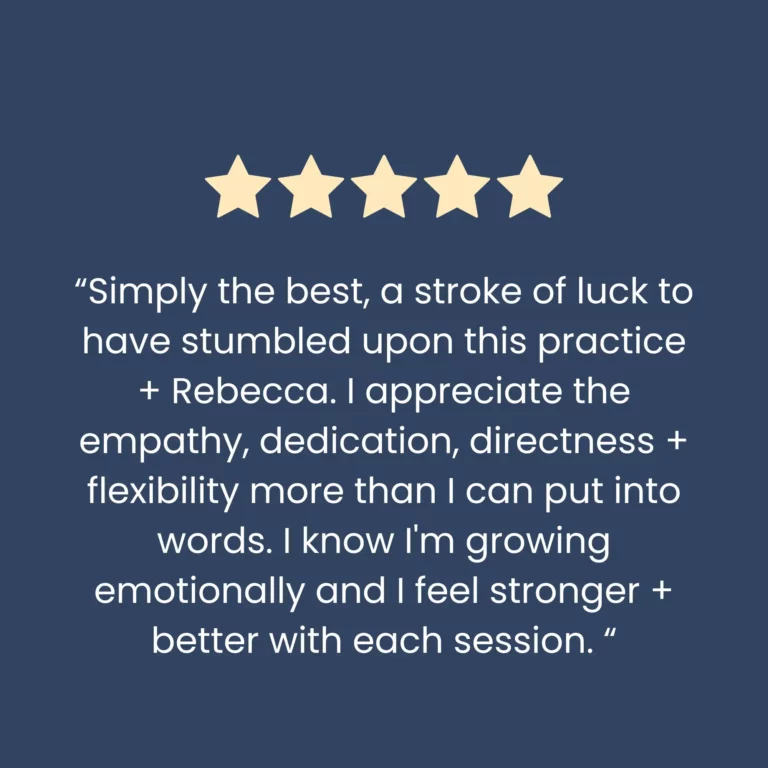
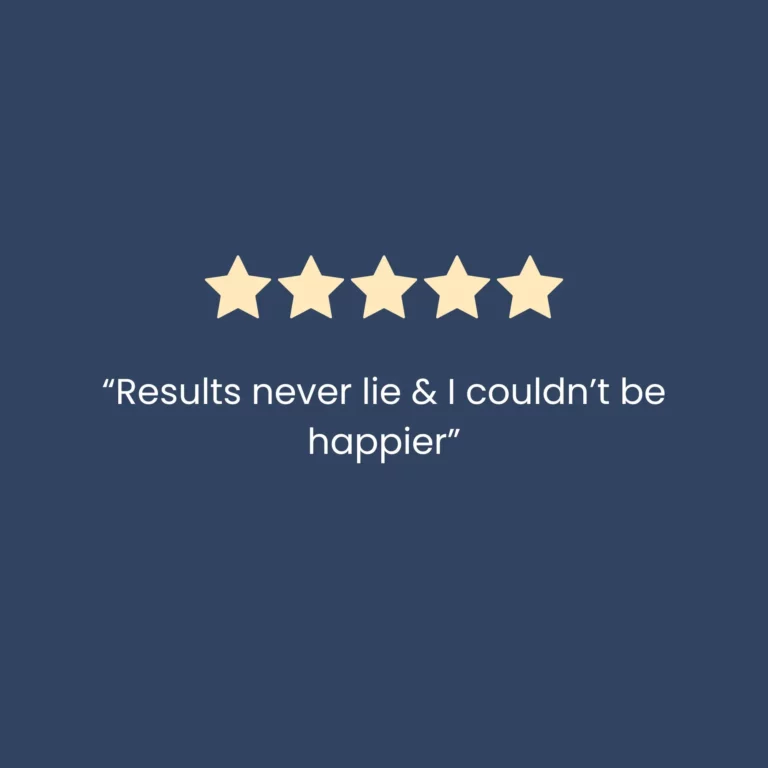

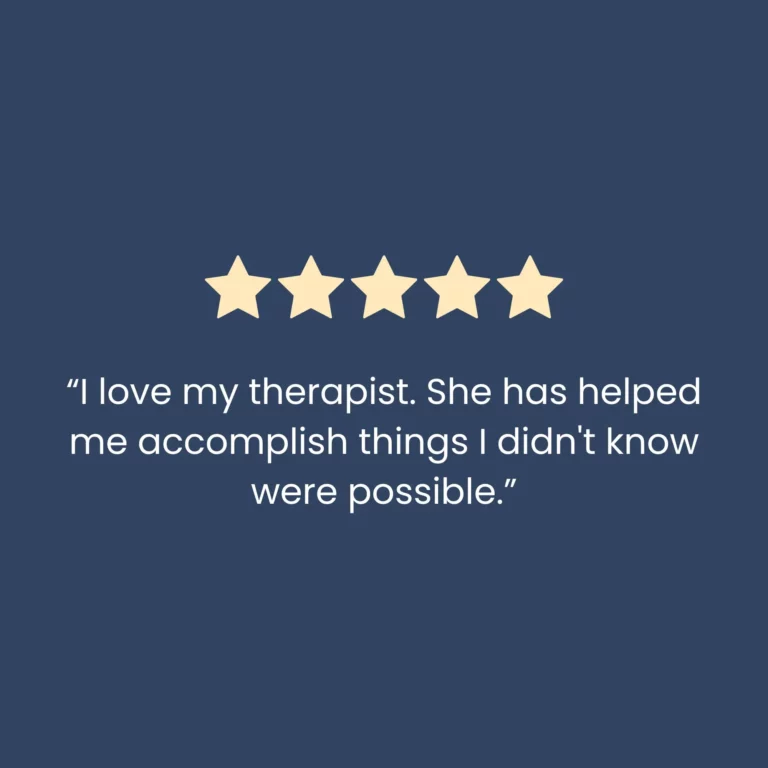
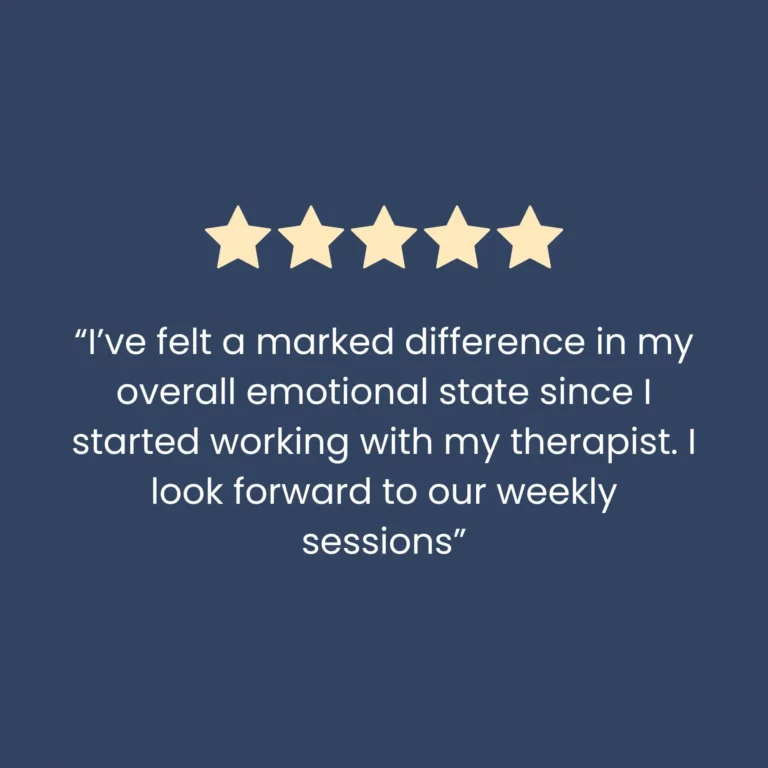
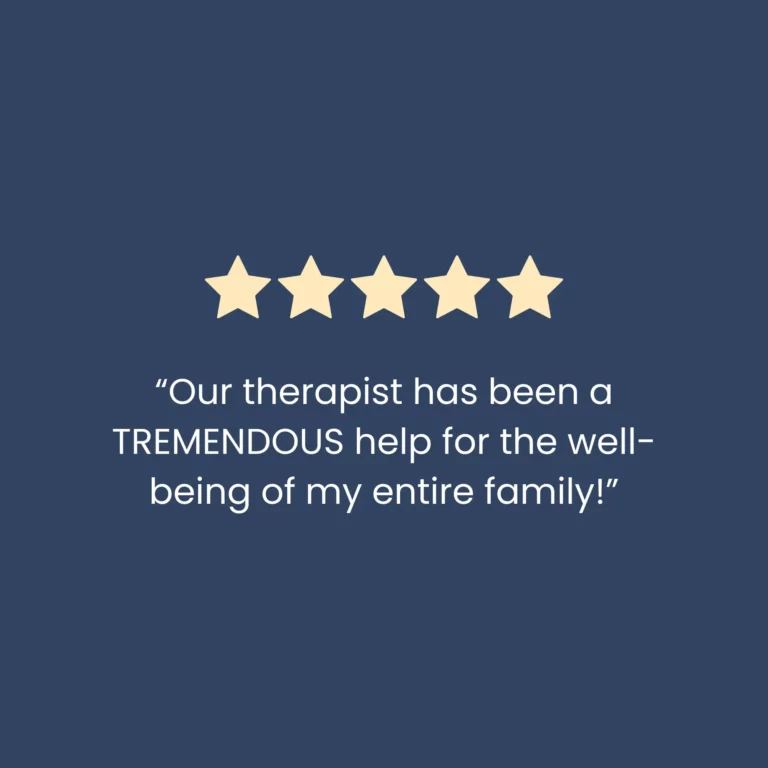
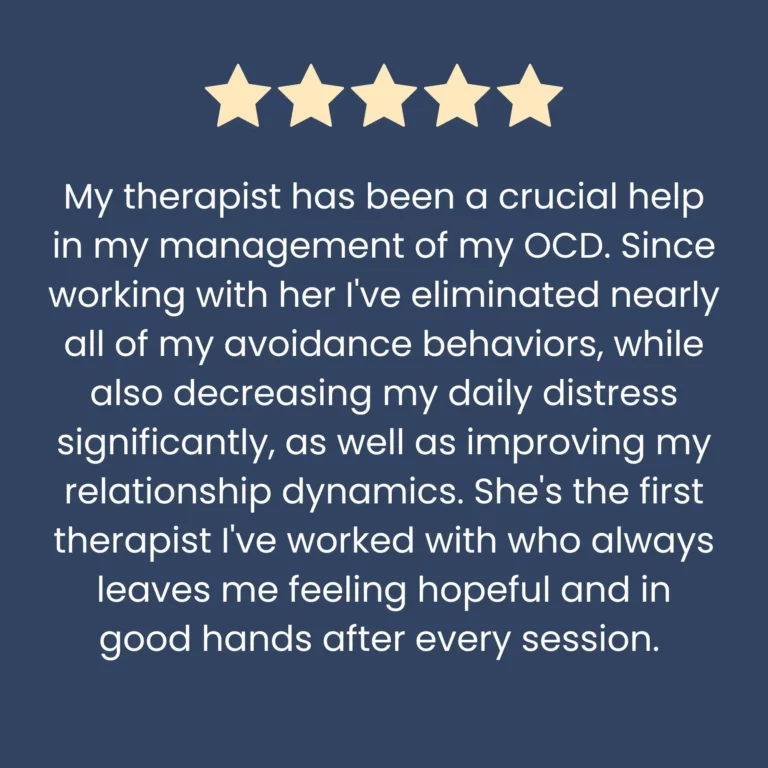
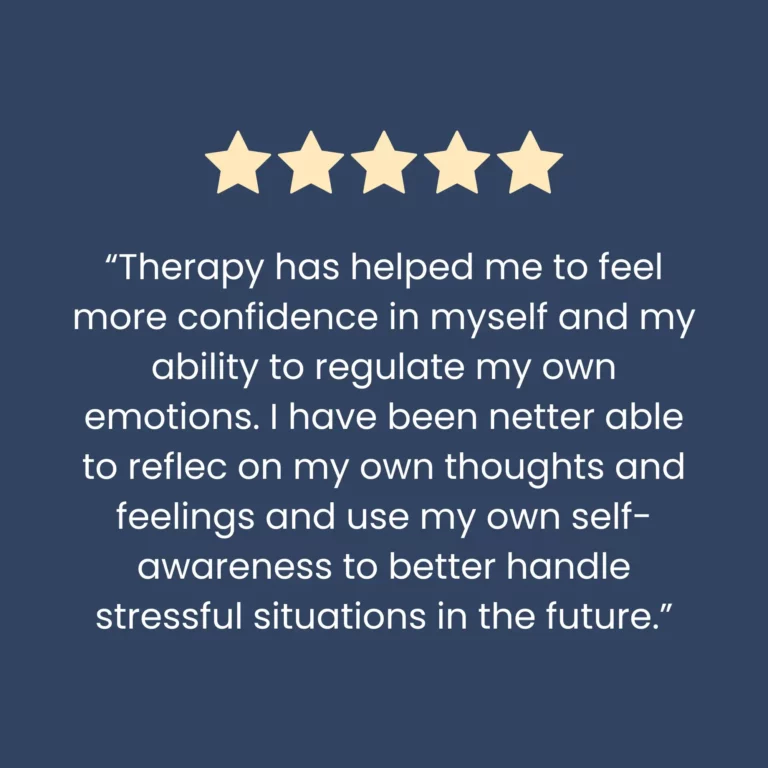
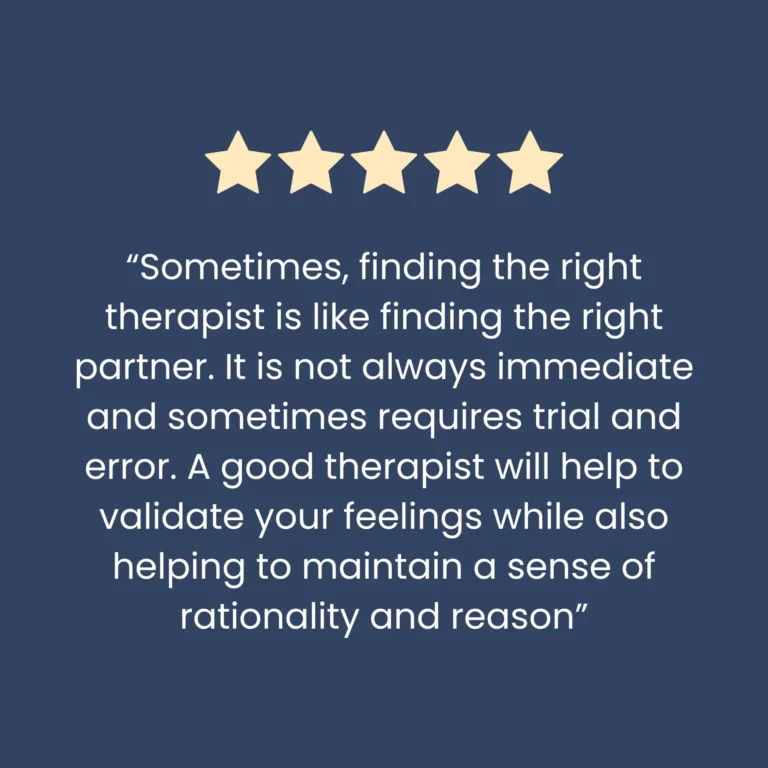
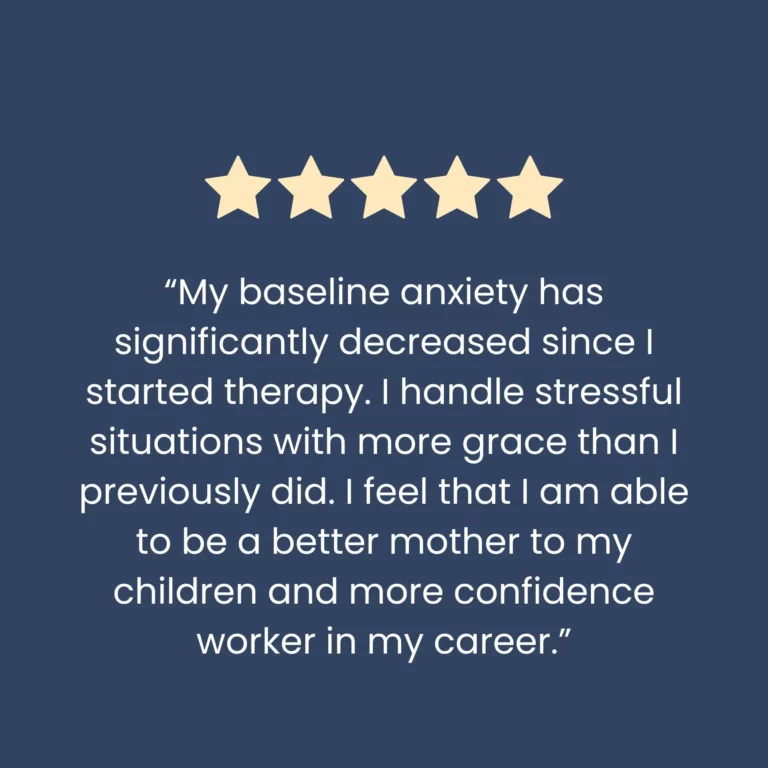
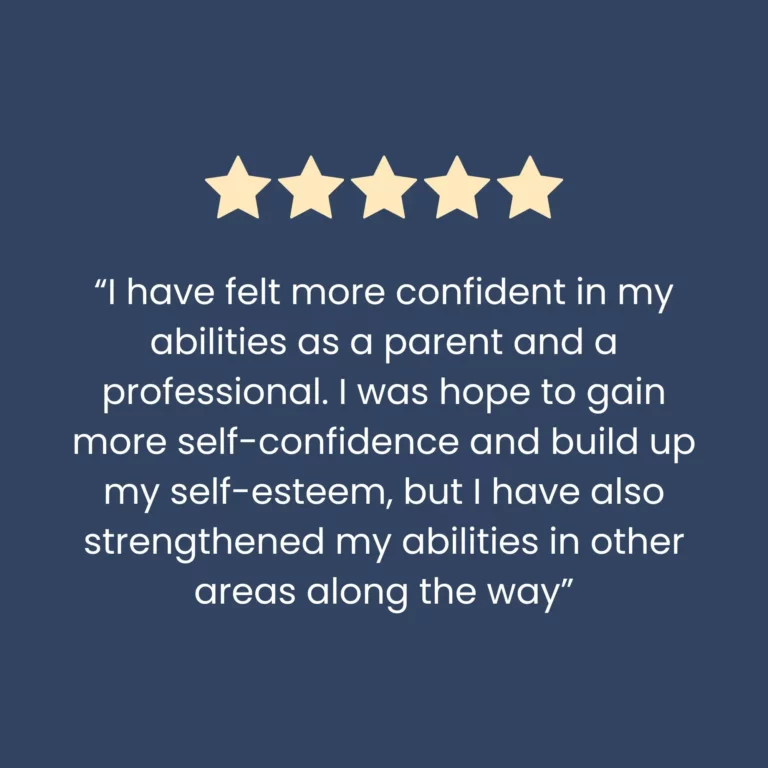



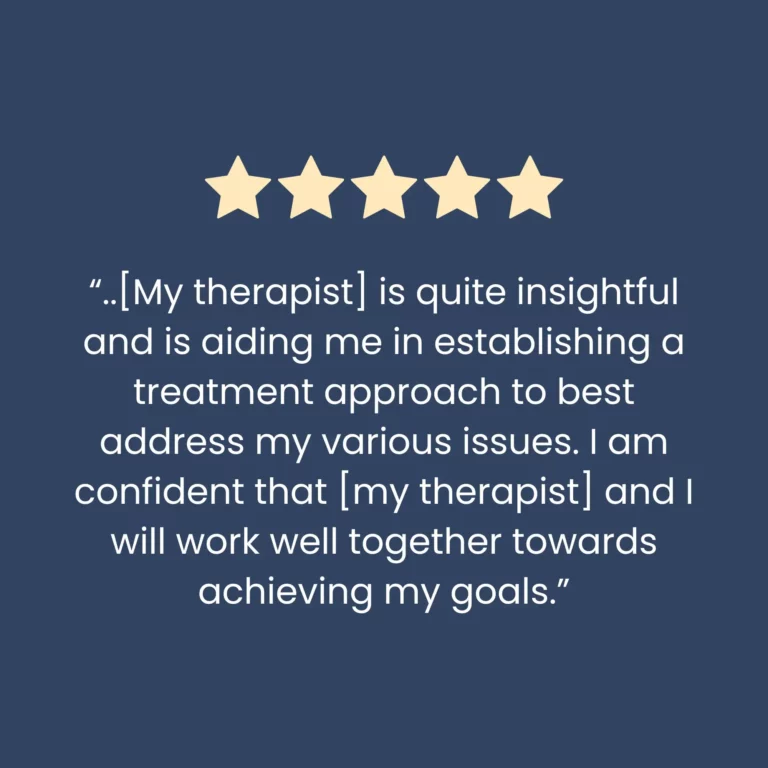

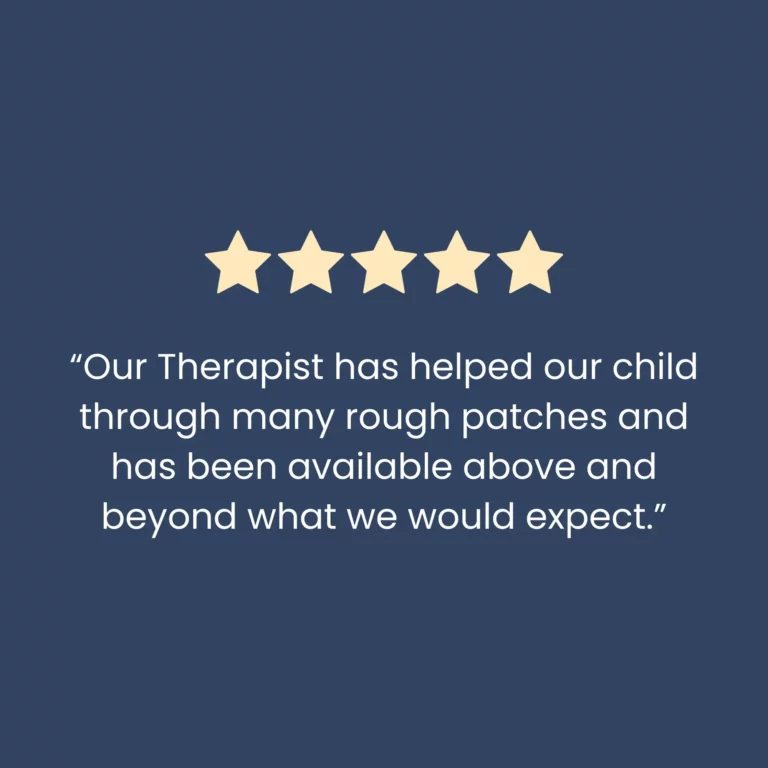

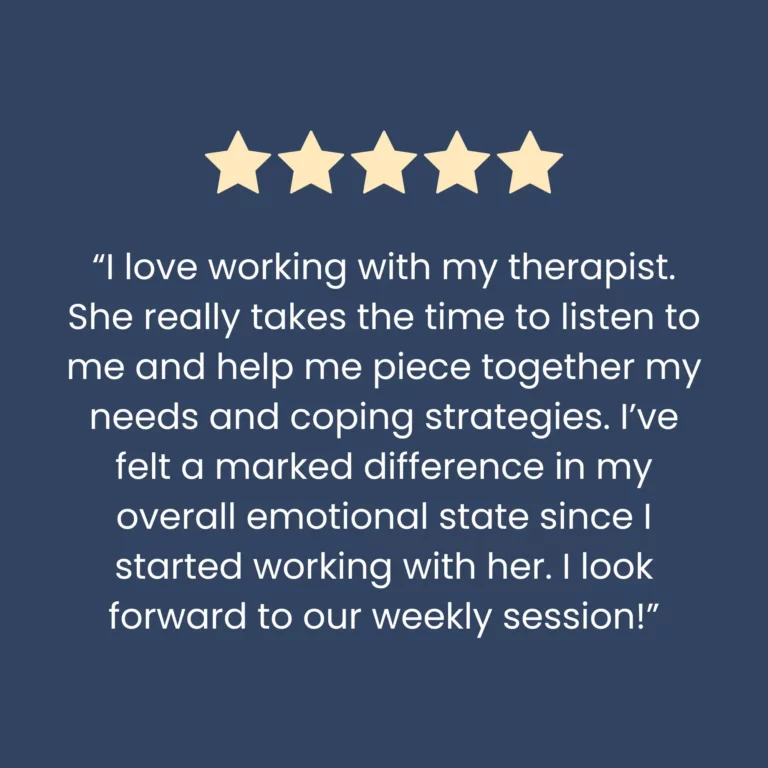


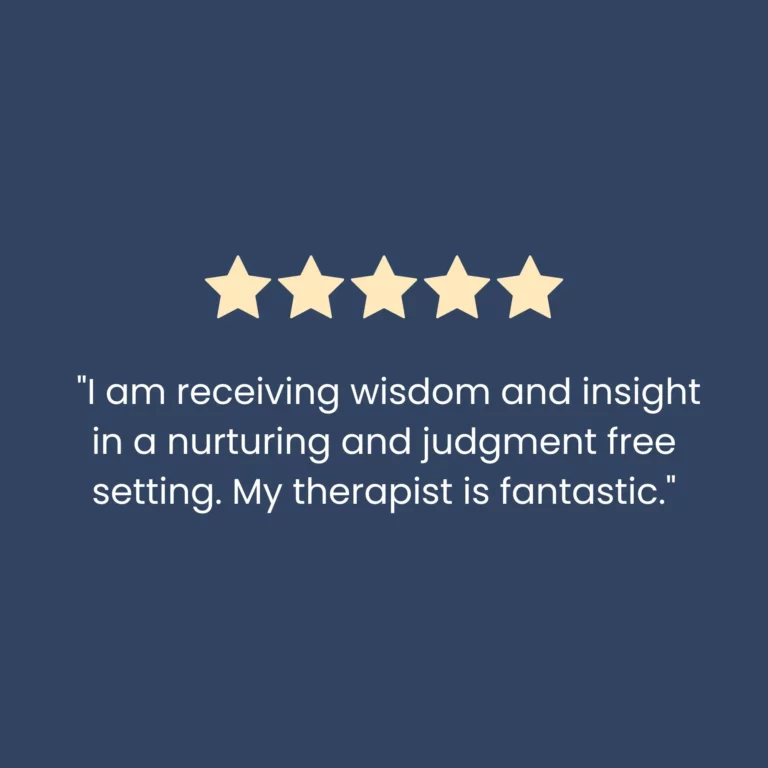
FAQ's
ABout Online Therapy
➜ Read More
Our Areas of Speciality
Therapy for Anxiety
Anxiety therapy is one of the most common reasons individuals come to therapy, and our expert therapists are ready to help you overcome anxiety and reclaim your life.
Therapy for OCD
Online therapy for OCD gives clients the skills to break from the patterns of OCD, employing proven strategies to overcome OCD & reclaim the joy of life.
Therapy for Depression
Getting therapy for depression may feel overwhelming, but our depression therapists are compassionate and effective in treatment for depression in New Jersey.
Therapy for Stress
Therapy for stress management will help you adapt how you respond to life’s challenges, allowing you to live with more peace, focus, and joy.
Therapy for Phobias
Online therapy for phobias helps clients manage and overcome fear and panic. Our dedicated team is here to support you on your journey to reclaim your life.
Therapy for Trauma
Trauma Counseling serves as a valuable tool for individuals struggling with symptoms related to PTSD & stress.
Therapy for Grief
Online grief counseling offers a space to understand and process your feelings, ensuring that whatever the source of your grief, you’re not navigating this journey alone.
Therapy for Teens
Online therapy for teens includes options for creative art therapies, VR therapy as well as traditional talk therapy for teens.
Our Therapy Approaches
Ketamine Assisted Therapy
Ketamine Assisted Therapy has been shown to reduce the symptoms of PTSD, depression, anxiety, chronic pain and more.
Virtual Reality Therapy
Virtual Reality Therapy helps clients overcome phobias, anxiety disorders, and other mental health conditions by exposing them to their fears in a controlled, safe environment.
Expressive Art Therapy
Art can be a helpful support tool in therapy to help with communication, expression, mindfulness & grounding.
Cognitive Behavioral Therapy
CBT is present-focused, making it especially effective for those seeking tangible results.
Emotion-Focused Therapy
In EFT sessions, the therapist and client work together & the therapist assists clients in deciphering their emotions rather than imposing interpretations.
Exposure Therapy
Through exposure therapy, our therapists will introduce you to the very things that trigger your fear.
Where are you located? I need a therapist near me
We are fully online, which means that your therapy sessions will be help via video call on our HIPAA compliant Platform. Anyone in New Jersey can access our therapy services
How do I get started as a new client?
New Clients can reach out to us directly via call, text or email here:
Does my insurance cover my visits?
We provide”Courtesy Billing” for clients who are using the Out-of-network insurance benefits.
Our Insurance Page might answer your questions about your insurance information, cost and OON coverage.
What are out-of-network benefits?
Visits our FAQ About Insurance to learn more about OON coverage for mental health services. We can also check your benefits for you. When using OON benefits, patients typically pay the full cost of the treatment upfront and then file a claim with their insurance company for reimbursement.
Is Online Therapy As Effective As In-Person Therapy?
Online therapy is essentially face-to-face counseling, just conducted remotely. Studies show that tele-therapy is as effective as traditional counseling. Professional organizations and state governments recognize its benefits and have set regulations for it. However, like any therapy, its success in achieving your goals isn’t guaranteed. It’s important to discuss with your therapist whether tele-therapy is working for you.
How Should I Prepare for My First Session?
Showing up is all that you need to do! But if you really want to get the most out of session, it could help to take some time to think about what you want from therapy. It helps to write down your goals, questions you have or things that you feel are important to share.
Do you offer traditional talk therapy?
of course! though we have some unconventional therapy approaches, we are rooted in evidenced based practices. Talk therapy is a major player in the therapy room! See What we Treat and Integrative Services for more information
Is Virtual Counseling Suitable for Everyone?
Online therapy might not be as effective for individuals with chronic suicidal thoughts, severe trauma, significant mental health history, or those recently in intensive care. Such cases often benefit more from traditional, in-person counseling. We’ll help you decide if our online services are right for you during your intake and evaluation.
Can I Change Therapists If I'm Not Happy?
Yes, you can switch therapists to another provider within the practice, or we can provide you a referral if preferred. We want to ensure that your time and effort are well spent, and that you are getting the relief you need, that’s why we work collaboratively with each other in the practice, as well as outside therapists who we know and trust.
How Do I Know If Therapy Is Helping?
You should feel like you’re making progress. Signs it’s working include:
- Feeling comfortable talking to your therapist
- Your therapist respects boundaries
- You’re moving towards your goals
- You feel listened to
You’re doing better in life - Your self-esteem is getting better
What is your cancellation policy?
We ask that clients provide at least 24 hours notice in the event that they need to cancel to avoid the 50% cancellation fee. we understand that life happens and do our best to be flexible & reschedule.
What Geographic Areas Are Served?
Currently, we serve clients in New Jersey and are expanding to other states as telehealth laws evolve. While telehealth offers the convenience of attending sessions from anywhere, state laws require clients to be in-state during their session.
Is Online Therapy Easy to Use for Non-Tech-Savvy People?
Yes, it’s pretty simple to access sessions. You’ll need basic internet skills, such as opening and visiting the patient link sent to you via email. It’s similar to video chatting like Facetime or Zoom. We can also walk you through it on the phone the first time to ensure a strong connection
What Questions Should I Ask My New Therapist?
Feel free to ask anything. Some good questions are:
- How often will we meet?
- What do you specialize in?
- What experience do you have with my issue?
- What outcomes can I expect?
- How will I know I’m progressing?
- How long do you usually work with clients?
- How will we set my treatment goals?
What is the difference between associate therapists & fully licensed therapists?
Our Qualifications:
Our founder, Rebecca Sidoti, is a highly qualified, state-licensed therapist and supervisor with extensive training in anxiety related disorders and innovative treatment such as Ketamine Therapy. Mind by Design Counseling adheres to standards set by the our governing counseling boards.
To see each providers credentials, training and licenses, visit our “Meet the Therapists” Page to learn more.
- LAC/LSW are therapists who may practice clinical work under the supervision of a fully licensed therapist.
- LPC/LCSW are therapists who have completed the necessary clinical hours post-graduation under supervision and can practice clinical work independently.
Where are you located? I need a therapist near me
We are fully online, which means that your therapy sessions will be help via video call on our HIPAA compliant Platform. Anyone in New Jersey can access our therapy services
How do I get started as a new client?
New Clients can reach out to us directly via call, text or email here:
Does my insurance cover my visits?
We provide”Courtesy Billing” for clients who are using the Out-of-network insurance benefits.
Our Insurance Page shares a small blurb about Why We Left Insurance Panels
What are out-of-network benefits?
When using OON benefits, patients typically pay the full cost of the treatment upfront and then file a claim with their insurance company for reimbursement. The amount of reimbursement can vary depending on the plan, but it can sometimes be as high as 90%. Call your insurance to see if you have OON benefits or click here to call us and we can check for you!
Is Online Therapy As Effective As In-Person Therapy?
Online therapy is essentially face-to-face counseling, just conducted remotely. Studies show that tele-therapy is as effective as traditional counseling. Professional organizations and state governments recognize its benefits and have set regulations for it. However, like any therapy, its success in achieving your goals isn’t guaranteed. It’s important to discuss with your therapist whether tele-therapy is working for you.
How Should I Prepare for My First Session?
Showing up is all that you need to do! But if you really want to get the most out of session, it could help to take some time to think about what you want from therapy. It helps to write down your goals, questions you have or things that you feel are important to share.
Do you offer traditional talk therapy?
of course! though we have some unconventional therapy approaches, we are rooted in evidenced based practices. Talk therapy is a major player in the therapy room! See What we Treat and Integrative Services for more information
Is Virtual Counseling Suitable for Everyone?
Online therapy might not be as effective for individuals with chronic suicidal thoughts, severe trauma, significant mental health history, or those recently in intensive care. Such cases often benefit more from traditional, in-person counseling. We’ll help you decide if our online services are right for you during your intake and evaluation.
Can I Change Therapists If I'm Not Happy?
Yes, you can switch therapists to another provider within the practice, or we can provide you a referral if preferred. We want to ensure that your time and effort are well spent, and that you are getting the relief you need, that’s why we work collaboratively with each other in the practice, as well as outside therapists who we know and trust.
How Do I Know If Therapy Is Helping?
You should feel like you’re making progress. Signs it’s working include:
- Feeling comfortable talking to your therapist
- Your therapist respects boundaries
- You’re moving towards your goals
- You feel listened to
You’re doing better in life - Your self-esteem is getting better
What is your cancellation policy?
We ask that clients provide at least 24 hours notice in the event that they need to cancel to avoid the 50% cancellation fee. we understand that life happens and do our best to be flexible & reschedule.
What Geographic Areas Are Served?
Currently, we serve clients in New Jersey and are expanding to other states as telehealth laws evolve. While telehealth offers the convenience of attending sessions from anywhere, state laws require clients to be in-state during their session.
Is Online Therapy Easy to Use for Non-Tech-Savvy People?
Yes, it’s pretty simple to access sessions. You’ll need basic internet skills, such as opening and visiting the patient link sent to you via email. It’s similar to video chatting like Facetime or Zoom. We can also walk you through it on the phone the first time to ensure a strong connection
What Questions Should I Ask My New Therapist?
Feel free to ask anything. Some good questions are:
- How often will we meet?
- What do you specialize in?
- What experience do you have with my issue?
- What outcomes can I expect?
- How will I know I’m progressing?
- How long do you usually work with clients?
- How will we set my treatment goals?
What is the difference between associate therapists & fully licensed therapists?
Our Qualifications:
Our founder, Rebecca Sidoti, is a highly qualified, state-licensed therapist and supervisor with extensive training in anxiety related disorders and innovative treatment such as Ketamine Therapy. Mind by Design Counseling adheres to standards set by the our governing counseling boards.
To see each providers credentials, training and licenses, visit our “Meet the Therapists” Page to learn more.
- LAC/LSW are therapists who may practice clinical work under the supervision of a fully licensed therapist.
- LPC/LCSW are therapists who have completed the necessary clinical hours post-graduation under supervision and can practice clinical work independently.
